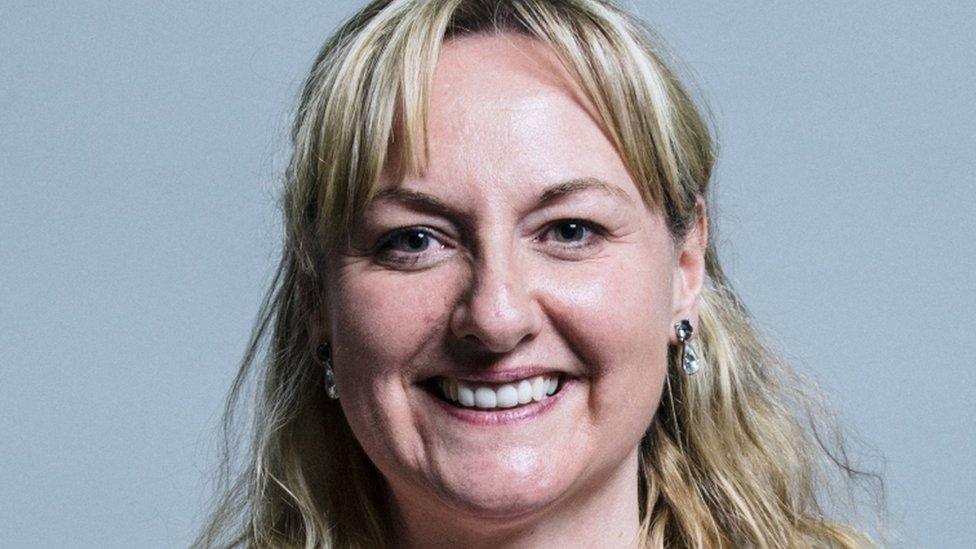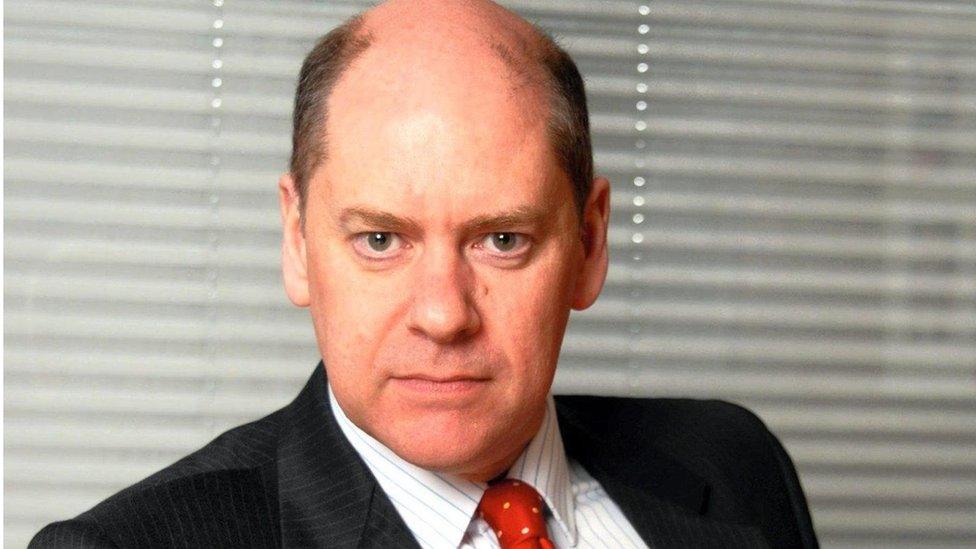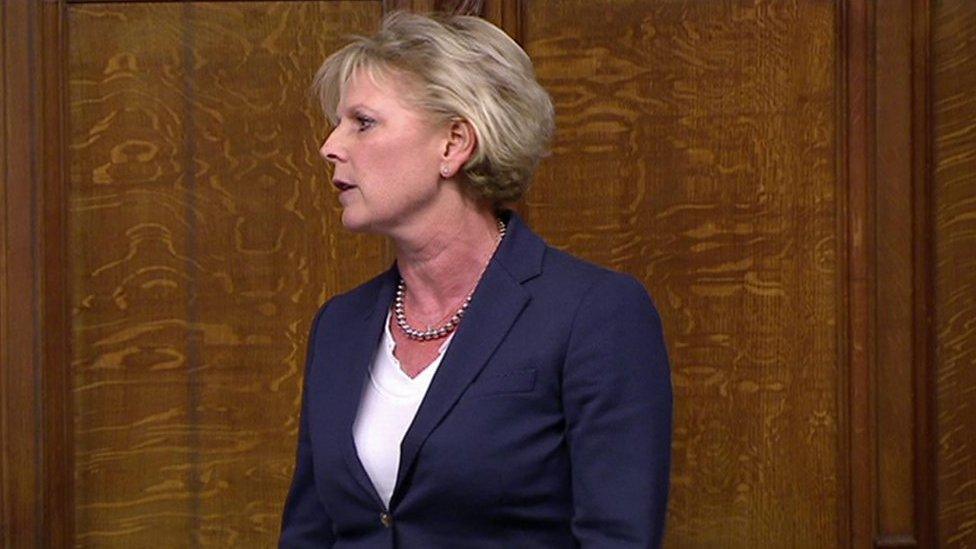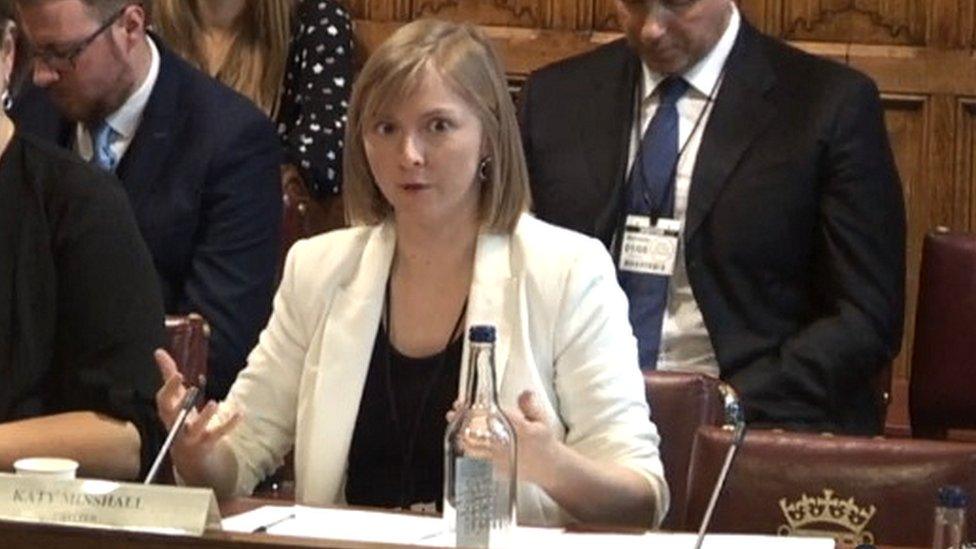MPs describe threats, abuse and safety fears
- Published
MPs talk about the level of abuse and threats they receive both online and offline
MPs have told the BBC about the threats and abuse they face, including being sent pictures of decapitated bodies, being surreptitiously filmed and having dog mess smeared on their door.
SNP MP Dr Lisa Cameron said she had put in place extra security so her children could play safely in her garden.
Conservative Scott Mann said someone threatened to nail bomb his office.
The Commons Deputy Speaker said some MPs had told him they would not run for office again because of safety fears.
The BBC carried out a survey of MPs in writing and by phone between May and July this year. Out of a total of 650, 172 responded.
Of those, 139 said either they or their staff had faced abuse in the past year.
More than 60% (108) of those who replied said they had been in contact with the police about threats in the last 12 months.
Separate analysis carried out by academics at the University of Sheffield for BBC News looked at levels of abuse directed at MPs on Twitter.
Key findings included:
Levels of abuse fluctuate over time, with spikes driven by events - for example, the death of IS bride Shamima Begum's baby or key events in the Brexit negotiations
Labour MP David Lammy has received the most abuse of any MP on Twitter so far this year
On average, male MPs attract significantly more abuse than female ones
Conservative MPs, on average, attract significantly more abuse than Labour ones
Sexist abuse is the most prevalent, as compared with homophobia or racism
Family 'at risk'
MPs from across the House of Commons and with differing views on issues like Brexit told the BBC about threats they had experienced.
Dr Cameron said as soon as she was elected in 2015 she started to receive death threats and pictures of decapitated bodies.
On the advice of police, she cordoned off part of her garden so that her children had somewhere safe to play with increased security.
"It makes you wonder whether you've put your family inadvertently at risk as a result of your choices," she said.
Earlier this year, she secured a four-year non-harassment order against a constituent who branded her a child abuser on Twitter.
Speaking about a nail bomb threat made to his office, Mr Mann told the BBC: "In any other profession, an HR team would be in complete meltdown with some of this stuff."
Liberal Democrat Tom Brake said he had to have people removed from his constituency office.
Another Conservative, Bob Blackman, whose constituency office was the target of arson, said he had enhanced security around his home because of attacks on his car.
Others reported being surreptitiously filmed in the supermarket and having dog mess left on their door.

The SNP's Lisa Cameron said she feared for her children's safety
In May, 23-year-old Jack Renshaw was jailed for life for planning to murder Labour MP Rosie Cooper.
The judge at the Old Bailey said the neo-Nazi had wanted to "replicate" the murder of MP Jo Cox, who was stabbed to death in June 2016.
Many MPs told the BBC they expected to receive abuse but were concerned about its impact on their staff and family.
"I've had staff members resign because of the pressure of such threats," the Labour MP John Mann said. He said his wife and daughter had both been threatened with rape.
"The systems are not coherent, police coordination is not coherent. It should be one specialised unit who deals with it, not multiple police forces across the country," he added.

Jack Renshaw was jailed for life earlier this year for planning to murder an MP
In May, Metropolitan Police Commissioner Cressida Dick told a Commons committee threats to MPs were at "unprecedented levels", with the number of crimes reported more than doubling in 2018 - from 151 to 342.
Met Police Commander Adrian Usher, who leads policing at the Palace of Westminster, called it a "dramatic rise" and said there was "no doubt" that since the middle of 2018 "we have seen a more febrile atmosphere in political debate".
Lord Evans, who chairs of the Committee on Standards in Public Life, said the survey demonstrated there was "an urgent and serious problem with intimidation and abuse... and it's getting worse".
Although the police response had improved, he said, it was "patchy" and needed to be "centrally co-ordinated as a national threat".
Labour MP Yasmin Qureshi said: "When all they say is 'you're a traitor and you shouldn't have a British passport,' or 'you're an ISIS sympathiser and you should be sent back to whichever Muslim country so you can be raped and abused,' I do think that you can't then engage with these people."
She called on social media companies to spend more on monitoring as the University of Sheffield researchers said abuse appeared to be reaching new levels of intensity.
'Will not compromise'
The team from the Department of Computer Science studied the replies MPs received to their tweets in the first half of this year.
They found the proportion of abusive replies increased significantly month on month, and by June, just under 4% of all replies were abusive in nature.
"We've not seen that kind of figure before," said Prof Kalina Bontcheva, who led the team. She added that the top 10 most targeted MPs received almost half of all abuse.
David Lammy told BBC News: "I will not compromise what I say in public life and let the bullies win.
"But it saddens me greatly that this is a growing stain on our national democracy. It needs to be challenged and it needs to be dealt with."
Deputy Speaker of the House of Commons Sir Lindsay Hoyle said the BBC's findings were the "tip of the iceberg".
He said complaints he received from MPs in his capacity as chair of the Consultative Panel on Parliament Security reached the same level in the first six weeks of 2019 as they used to see in a year.
"When MPs turn around to me and say 'I'm not going to stand again, I don't feel safe, I don't need this,' we're in danger of losing democracy in this country," he added.
- Published22 March 2019

- Published12 June 2018

- Published1 May 2019
